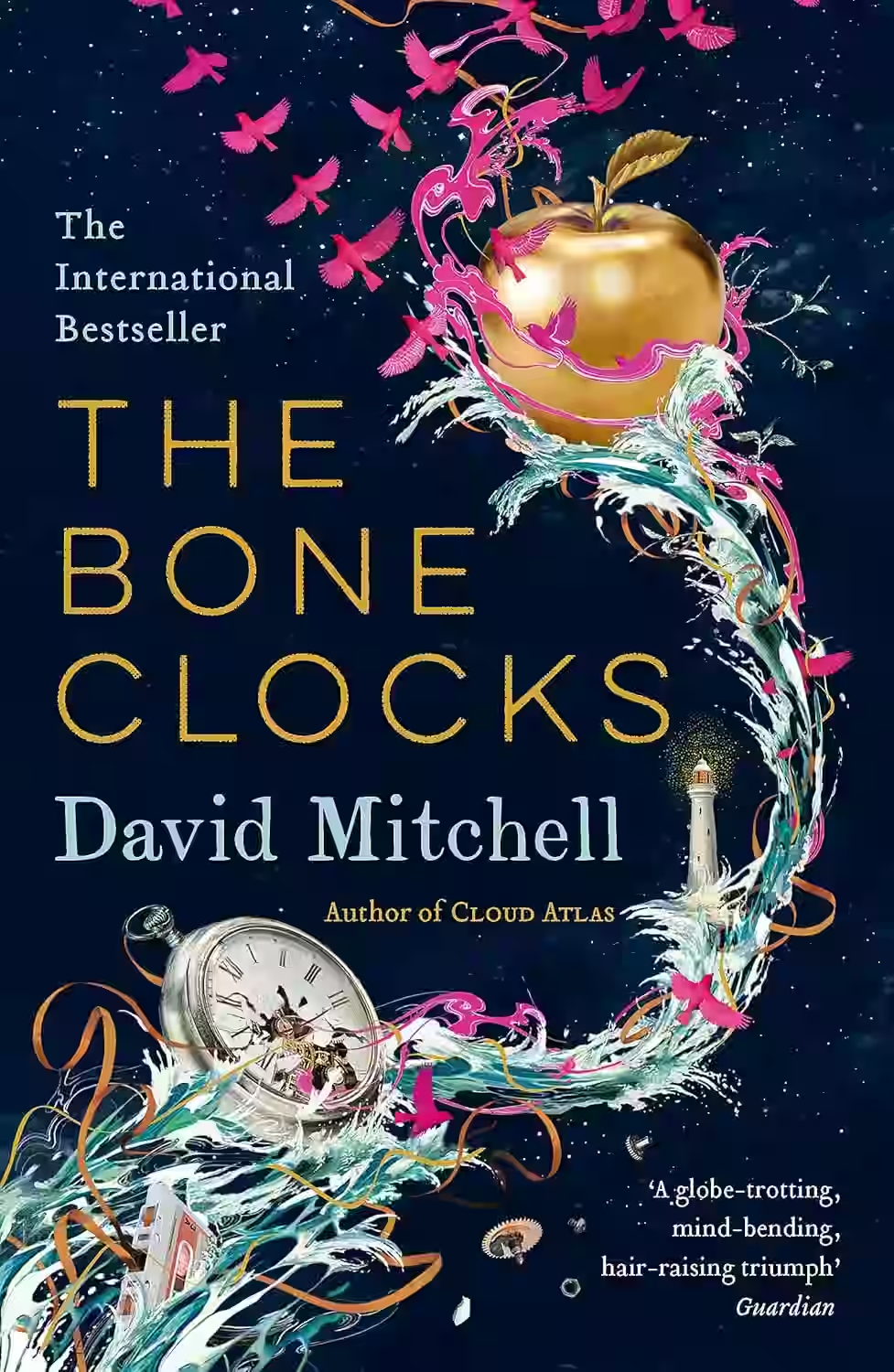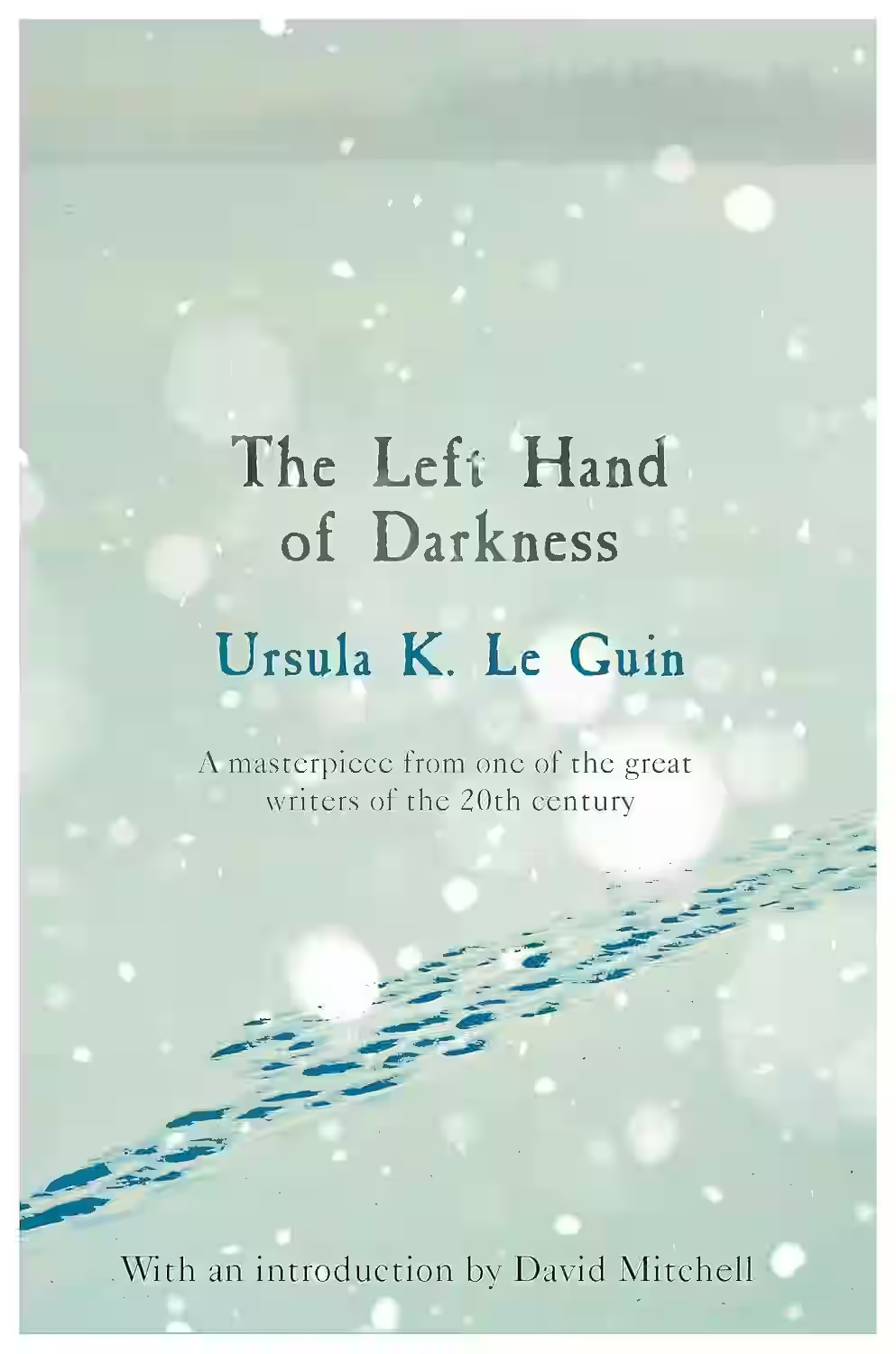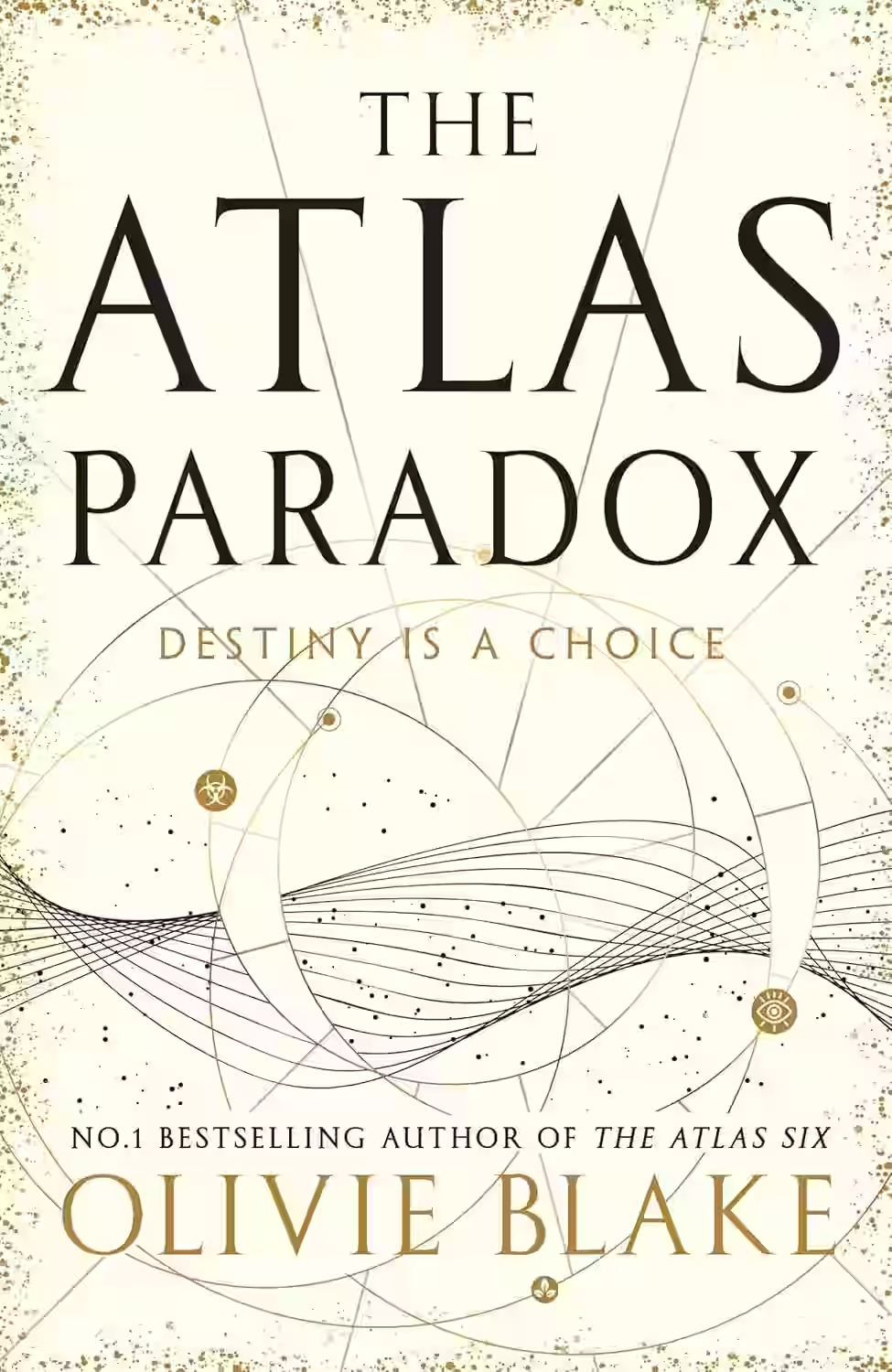
Six nested stories span from the 19th century South Pacific to a post-apocalyptic future, each tale being discovered or experienced by the main character in the next. The novel explores how lives echo through time, examining themes of power, predacity, and the connections that transcend time and space.
About David Mitchell
A British author known for his ambitious and stylistically diverse novels, including Cloud Atlas and The Bone Clocks. Mitchell masterfully interweaves multiple narratives, time periods, and genres, exploring themes of interconnectedness, reincarnation, and the cyclical nature of history. His innovative structures and compelling characters have established him as a significant and inventive voice in contemporary literature.
Other Books by David Mitchell

The Bone Clocks
In David Mitchell's ambitious novel 'The Bone Clocks,' he weaves a complex tapestry of interconnected stories that span across decades and genres. At its core, the book delves into themes of time, mortality, and the blurred lines between reality and fantasy. Through the eyes of protagonist Holly Sykes, readers are taken on a journey that combines elements of fantasy, mystery, and science fiction. Mitchell's intricate storytelling and vivid characters keep readers captivated as they navigate through different timelines and dimensions. 'The Bone Clocks' is a thought-provoking and immersive read that challenges perceptions of life and death.

Slade House
In David Mitchell's 'Slade House,' readers are taken on a chilling and mysterious journey through a haunting house that only appears once every nine years. As unsuspecting visitors are lured into its depths, they become entwined in a sinister web of deceit and supernatural forces. Mitchell masterfully weaves together elements of horror, fantasy, and psychological suspense, creating a narrative that is both gripping and unsettling. The themes of loss, memory, and the eternal battle between good and evil are expertly explored, keeping readers on edge until the final page. 'Slade House' is a haunting and captivating read that will leave a lasting impression.
Similar Books

Dune
Series: Dune (#1)
Set on the desert planet Arrakis, Dune is the story of the boy Paul Atreides, who would become the mysterious man known as Muad'dib. He would avenge the traitorous plot against his noble family—and would bring to fruition humankind's most ancient and unattainable dream. A stunning blend of adventure and mysticism, environmentalism and politics, Dune won the first Nebula Award, shared the Hugo Award, and formed the basis of what is undoubtedly the grandest epic in science fiction. Frank Herbert's death in 1986 was a tragic loss, yet the astounding legacy of his visionary fiction will live forever.

The Left Hand of Darkness
Ursula K. Le Guin’s The Left Hand of Darkness is a groundbreaking science fiction novel set on the icy planet of Gethen, where inhabitants are ambisexual, shifting between genders. Genly Ai, an envoy from another world, must navigate this unfamiliar culture and its politics to encourage planetary unity. His journey with the exiled Estravan becomes a profound exploration of identity, trust, and human connection. Le Guin masterfully blends anthropology, philosophy, and science fiction to challenge gender norms and cultural assumptions. A classic of the genre, it’s a powerful meditation on what it means to be human.

The Atlas Paradox
by Olivie Blake
Series: The Atlas (#2)
In 'The Atlas Paradox,' Olivie Blake continues to captivate readers with her blend of intrigue and intellectual challenge. As a sequel to 'The Atlas Six,' this novel dives deeper into the mysterious world of the Alexandrian Society, where six gifted magicians vie for their place among an elite group. Each character, with their unique abilities and motivations, navigates moral dilemmas and shifting alliances, revealing the corrupt underpinnings of their world. Blake deftly weaves a narrative that combines complex character development with philosophical questions about power, knowledge, and ethics. The book's stimulating dialogue and suspenseful plot maintain a gripping pace, enticing readers to ponder the true cost of ambition. 'The Atlas Paradox' is a thought-provoking exploration of the human psyche, making it a must-read for aficionados of dark academia and speculative fiction.

Perdido Street Station
The metropolis of New Crobuzon sprawls at the centre of its own bewildering world. Humans and mutants and arcane races throng the gloom beneath its chimneys, where the rivers are sluggish with unnatural effluent, and factories and foundries pound into the night. For more than a thousand years, the parliament and its brutal militia have ruled over a vast array of workers and artists, spies, magicians, junkies and whores. Now a stranger has come, with a pocketful of gold and an impossible demand, and inadvertently something unthinkable is released. Soon the city is gripped by an alien terror - and the fate of millions depends on a clutch of outcasts on the run from lawmakers and crime-lords alike. The urban nightscape becomes a hunting ground as battles rage in the shadows of bizarre buildings. And a reckoning is due at the city's heart, in the vast edifice of Perdido Street Station. It is too late to escape.